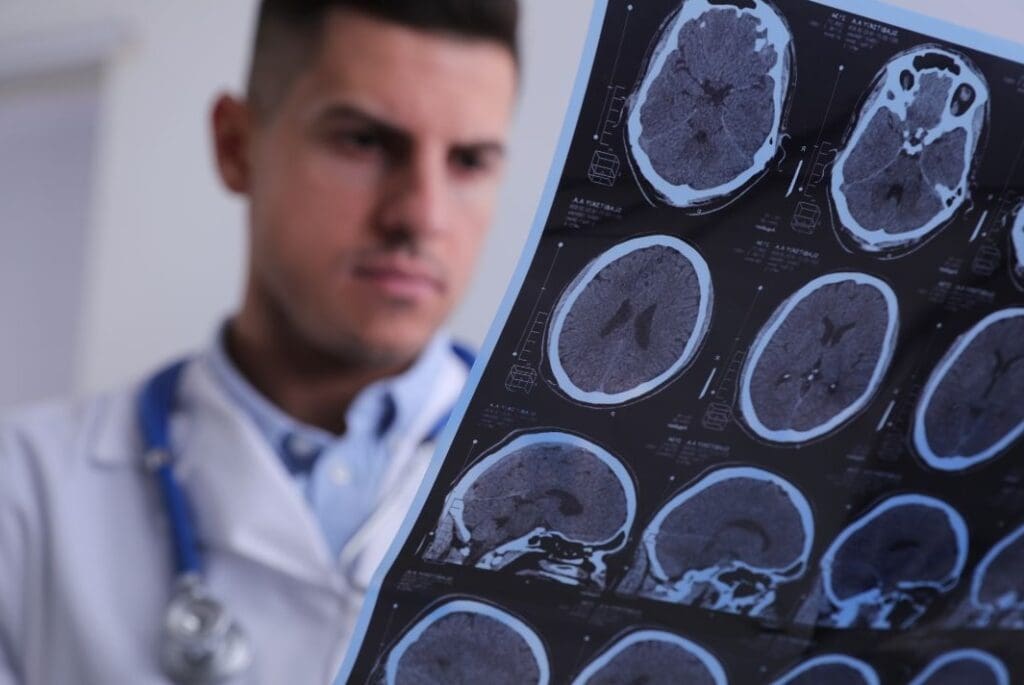Have you been newly diagnosed with MS and are now thinking ‘I’ve been diagnosed with MS now what’? We understand that this is an emotional and confusing time. But there are lots of ways to deal with this news. Understand what happens after someone is diagnosed with multiple sclerosis and learn how you can access the help you need.
Getting support for MS from professionals

If you have been newly diagnosed with MS, you will receive a referral to see a multiple sclerosis specialist nurse, who will be able to provide qualified help in lots of ways.
What does an MS nurse do?
A specialist MS nurse can:
- Offer clinical expertise and monitor the progression of MS
- Recommend and refer you to other health professionals, including counsellors, speech and language therapists, physiotherapists and neurologists
- Provide advice and information on treatments and medication available
- Help each individual understand and manage their diagnosis
As well as an MS specialist nurse, there are other ways you can get help to manage your condition.
Who else can I turn to for multiple sclerosis help?
You might benefit from receiving qualified advice from – or being referred to – a doctor, health professional or neurologist. They can all help in different ways, including:
Physiotherapy, occupational therapy, speech and language
Multiple sclerosis physiotherapy means working with a physiotherapist to assess how independent and mobile you are. Then, they can help to manage how well you move around to do day-to-day tasks as well as maintaining good balance, posture and fatigue.
Your GP or MS specialist nurse can also refer you to a physiotherapist. Alternatively, you can find out more about multiple sclerosis physiotherapy.
Counselling for MS
You can arrange to speak to a trained therapist on a one-off or regular basis. A counsellor can listen to how you’re feeling, and create a person-centered action plan for you to work on over time, as well as monitoring your progress.
Sessions can work over the phone, face-to-face or online, so you can choose which way would work best for you. You can ask your GP to refer you, or find out more about counselling for MS and their families.
Practical help for MS and mobility
If you are diganosed with MS, there are methods you can put into place to make your condition more manageable. Mobility aids for MS can make a difference in improving your confidence and independence levels. Here are some things you can consider doing in each room of the home:
- Grab rails and handles
- Pull alarms in the bathroom
- Wider door frames
- Walking sticks for MS to provide extra stability
- Safety aids in the bathroom
Find out more about how to care for someone with multiple sclerosis.
Find specialist help for MS
Try putting some of the above changes in place to make moving around easier for yourself. If you’re still concerned, we understand that it can be a difficult time adapting to the diagnosis. A live-in carer might provide specialist support and help on a short or long-term basis.
We could recomend carers to you to help individuals who have been newly diagnosed with MS, on a 1-2-1- basis. We aim to match your interests and personality to your chosen MS carer.
Once we’ve found the right carer for you, they can offer full support with:
- Personal care
- Cooking
- Physical assistance around the home
You can learn more about how live-in care for multiple sclerosis can help you.
“Having the support of Lorraine, my live-in carer, has now enabled me to walk independently. She is also a great cook!” Claire, Live-in care matching customer
Working with multiple sclerosis
For someone who has been newly diagnosed with MS, there is no need to rush into making any decisions when it comes to employment. Legally, your employer only needs to be notified if:
- You work in the armed forces
- Your MS affects their health and safety at work
- You drive as part of your job – this only applies if your MS affects your driving, if you’re covered by your employer or if you drive a taxi or HGV
Talk things through with your family. You can also discuss it with a health professional if you would like to get more advice.
Can you work if you have MS? Consider making adjustments
If you are still in work, you don’t have to tell your employer. However, we’d recommend having that conversation, because there are adjustments that can be made to make working with MS easier. These could include:
- Having more breaks
- Change in hours
- Working from home
Even if you don’t need to make any changes at work, it’s a good idea for your employer to be aware further down the line.
Can you drive with MS?
If you have been newly diagnosed with MS, the DVLA needs to be notified by filling out and submitting a form. Find out how to notify the DVLA.
It might be that you decide to stop driving due to your diagnosis. If this is the case, you’ll need to apply to surrender your licence.
How to get financial help for people with MS
You may be eligible for grants and financial help if they’ve been diagnosed with MS. Find out more about accessing monetary support for multiple sclerosis.
Joining the MS community
There is a wide range of useful resources you can access after an MS diagnosis. It could be worth considering:
- Online forums and chatrooms for those with MS
- MS helplines
- Support groups
Find support today
If you or a loved one has been newly diagnosed with MS? We’re here to help. Get in touch with our team to talk through support options today.



